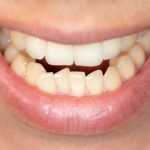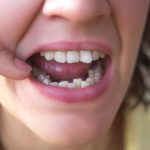How Long Do Teeth Last? Expert Answers and Tips to Keep Your Teeth Healthy for Life
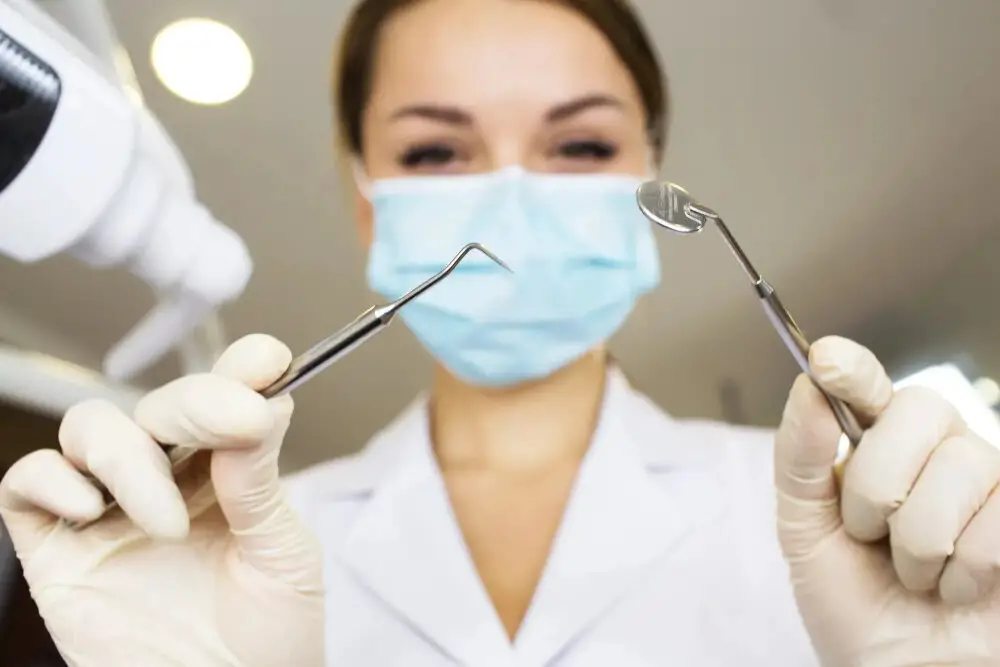
One of the most important aspects of our overall health is maintaining good dental hygiene. Our teeth are essential to daily life, allowing us to eat and speak properly, and they also play a significant role in our appearance. But how long do our teeth last, and what can we do to ensure they stay healthy for as long as possible? In this article, we’ll explore this topic in-depth, providing expert answers and tips to keep your teeth healthy for life. As we age, our teeth can become more susceptible to damage and decay. However, with proper care and attention, it’s possible to maintain healthy teeth well into old age. From regular brushing and flossing to visiting the dentist for check-ups and professional cleanings, there are many things we can do to keep our teeth in top condition. In this article, we’ll take a closer look at some of the factors that contribute to the longevity of our teeth, as well as some tips and tricks for keeping them healthy and strong.
Taking care of your teeth is crucial for maintaining good oral health and overall well-being. Neglecting your teeth can lead to a range of dental problems, including cavities, gum disease, and tooth loss. Poor oral health has also been linked to various systemic conditions, such as heart disease, diabetes, and stroke. Regular brushing and flossing, along with routine dental exams and cleanings, can help prevent these issues and keep your teeth healthy for life. Additionally, a healthy mouth can improve your confidence and self-esteem, as well as help you enjoy a wider range of foods and maintain proper nutrition. It’s never too late to start taking care of your teeth, so make sure to prioritize oral health in your daily routine.
In this article, we will delve into the topic of teeth and their longevity, exploring the factors that affect how long they last and what steps you can take to keep them healthy for life. We will examine the importance of dental hygiene practices such as brushing and flossing, as well as the role that diet and lifestyle choices play in maintaining strong and healthy teeth. Additionally, we will provide expert answers to common questions related to dental care, such as how often you should visit the dentist and what to do if you experience tooth pain or sensitivity. By the end of this article, you will have a better understanding of how to care for your teeth and ensure they last for as long as possible.
Average Lifespan of Teeth

The average lifespan of teeth can vary depending on various factors such as genetics, oral hygiene, diet, and lifestyle habits. Generally speaking, a healthy tooth can last a lifetime. However, this is not always the case, and teeth can become damaged or decayed over time. The front teeth typically last longer than the back teeth due to the amount of pressure and force they endure during biting and chewing. On average, most people will lose at least one tooth by the time they reach their mid-40s. Poor oral hygiene and unhealthy lifestyle habits such as smoking and excessive alcohol consumption can significantly impact the lifespan of teeth. Neglecting to brush and floss regularly can lead to the buildup of plaque and tartar, which can cause gum disease and tooth decay. Additionally, consuming sugary and acidic foods and drinks can erode tooth enamel and increase the risk of cavities. Therefore, it is essential to practice good oral hygiene habits and maintain a healthy diet to prolong the lifespan of teeth.
The longevity of teeth depends on various factors such as genetics, oral hygiene, diet, and lifestyle habits. Generally, teeth are expected to last a lifetime, but without proper care and attention, they may deteriorate or fall out prematurely. The outer layer of teeth, called enamel, is the hardest substance in the human body, but it can still wear down over time due to acidic foods and drinks, teeth grinding, or aggressive brushing. Additionally, gum disease is a major cause of tooth loss, as it weakens the supporting structures of the teeth. Therefore, it is crucial to maintain a healthy diet, practice good oral hygiene habits, and visit the dentist regularly to prevent dental problems and keep your teeth strong and healthy for life.
Various factors can affect the lifespan of teeth, and some of these factors can shorten or lengthen the longevity of teeth. Poor oral hygiene practices, such as infrequent brushing and flossing, can lead to the buildup of plaque and tartar, which can cause tooth decay and gum disease, ultimately leading to tooth loss. Consuming sugary and acidic foods and drinks can also contribute to the erosion of tooth enamel, weakening the teeth and making them more susceptible to decay. Other factors that can affect the lifespan of teeth include genetics, medical conditions, and lifestyle habits such as smoking and excessive alcohol consumption. On the other hand, maintaining good oral hygiene practices, including regular dental checkups and cleanings, and a healthy diet can help to extend the lifespan of teeth.
According to various studies, tooth loss is a common occurrence in different age groups, with the prevalence increasing with age. In individuals aged 20 to 34, the prevalence of tooth loss is approximately 5%, and this increases to 20% in those aged 35 to 44. In the age group of 65 to 74, approximately 25% of individuals are edentulous, meaning they have lost all of their teeth. Furthermore, women have a higher prevalence of tooth loss than men, and individuals with lower levels of education and income are also at a higher risk. These statistics emphasize the importance of maintaining good oral hygiene practices and seeking regular dental check-ups to prevent tooth loss and ensure a healthy smile for life.
How to Keep Your Teeth Healthy
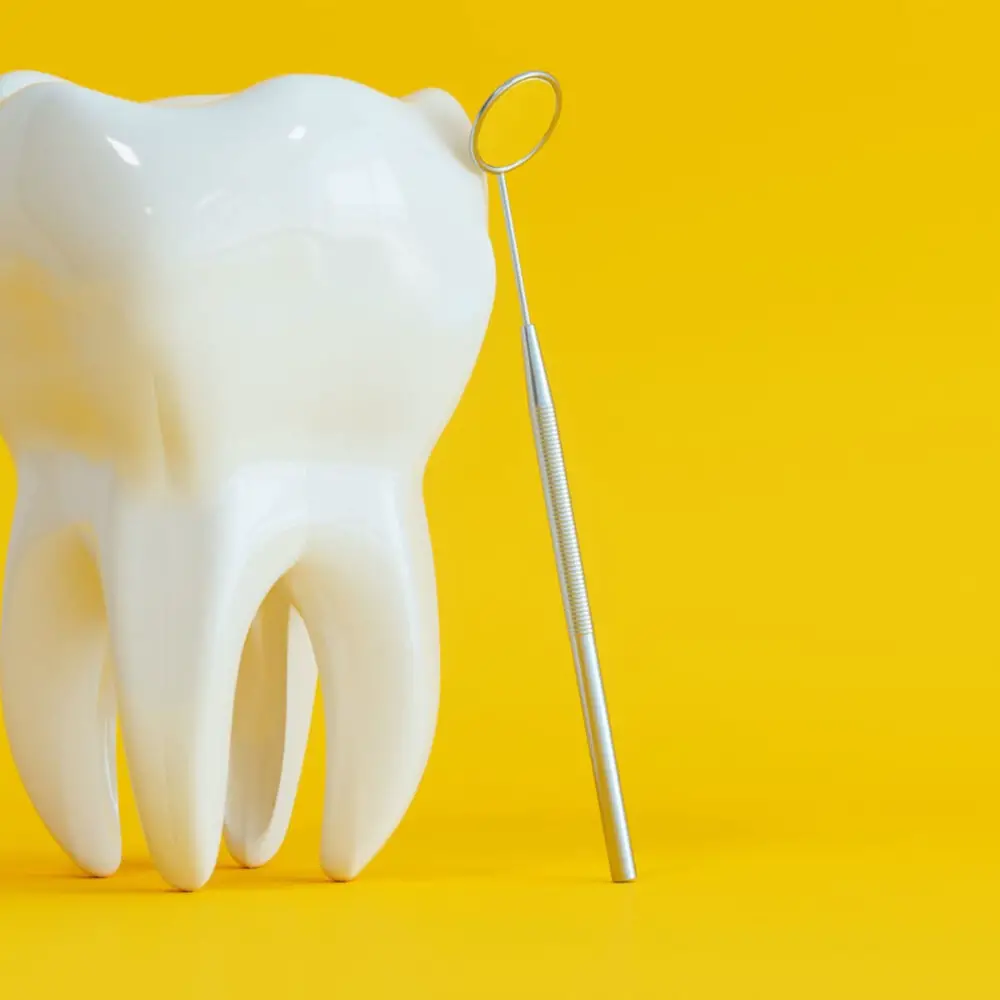
Maintaining good oral health is crucial for keeping your teeth healthy and strong for a lifetime. To achieve this, it is essential to follow proper dental hygiene practices such as brushing your teeth twice a day, flossing regularly, and using mouthwash to remove any bacteria or debris that may be present in your mouth. Additionally, it is important to visit your dentist regularly for routine check-ups and cleanings to ensure that any potential dental issues are detected and treated in a timely manner. In addition to oral hygiene practices, your diet also plays a significant role in maintaining healthy teeth. Consuming a balanced diet that is rich in vitamins and minerals, such as calcium, vitamin D, and phosphorus, can strengthen your teeth and prevent the development of tooth decay and other dental problems. Furthermore, limiting your intake of sugary and acidic foods and drinks can also help to protect your teeth from erosion and decay. By following these simple tips, you can keep your teeth healthy and strong for a lifetime, allowing you to enjoy a beautiful, confident smile for years to come.
Maintaining good oral hygiene is crucial for ensuring healthy teeth and gums that can last a lifetime. Firstly, it’s important to brush your teeth twice a day using a fluoride toothpaste and a soft-bristled toothbrush. Flossing at least once a day can also help remove food particles and plaque from between your teeth. Additionally, limiting sugary and acidic foods and beverages can help prevent tooth decay and erosion. Regular visits to the dentist for check-ups and cleanings are also essential to catch any potential issues early on. By following these simple tips, you can maintain good oral hygiene and keep your teeth healthy for life.
Regular dental checkups and cleanings are crucial for maintaining good oral health and preventing dental issues. These appointments allow dentists to identify any potential problems early on and address them before they become more serious. Cleanings can also remove built-up plaque and tartar that can lead to gum disease and tooth decay. In addition, regular checkups can help detect oral cancer, which can be life-threatening if left untreated. By scheduling regular dental appointments, individuals can ensure that their teeth and gums remain healthy and strong for a lifetime.
Dietary habits play a pivotal role in maintaining optimal dental health. Consuming a diet high in sugar, carbohydrates, and acidic foods/drinks can lead to decay and erosion of tooth enamel. On the other hand, a diet rich in calcium, phosphorus, and vitamin D can strengthen teeth and prevent tooth decay. Additionally, eating crunchy fruits and vegetables can help scrub away plaque and food particles, while drinking plenty of water helps keep the mouth hydrated and washes away harmful bacteria. Overall, adopting a balanced and nutritious diet is essential for maintaining healthy teeth and gums throughout life.
Common Dental Problems and Treatments
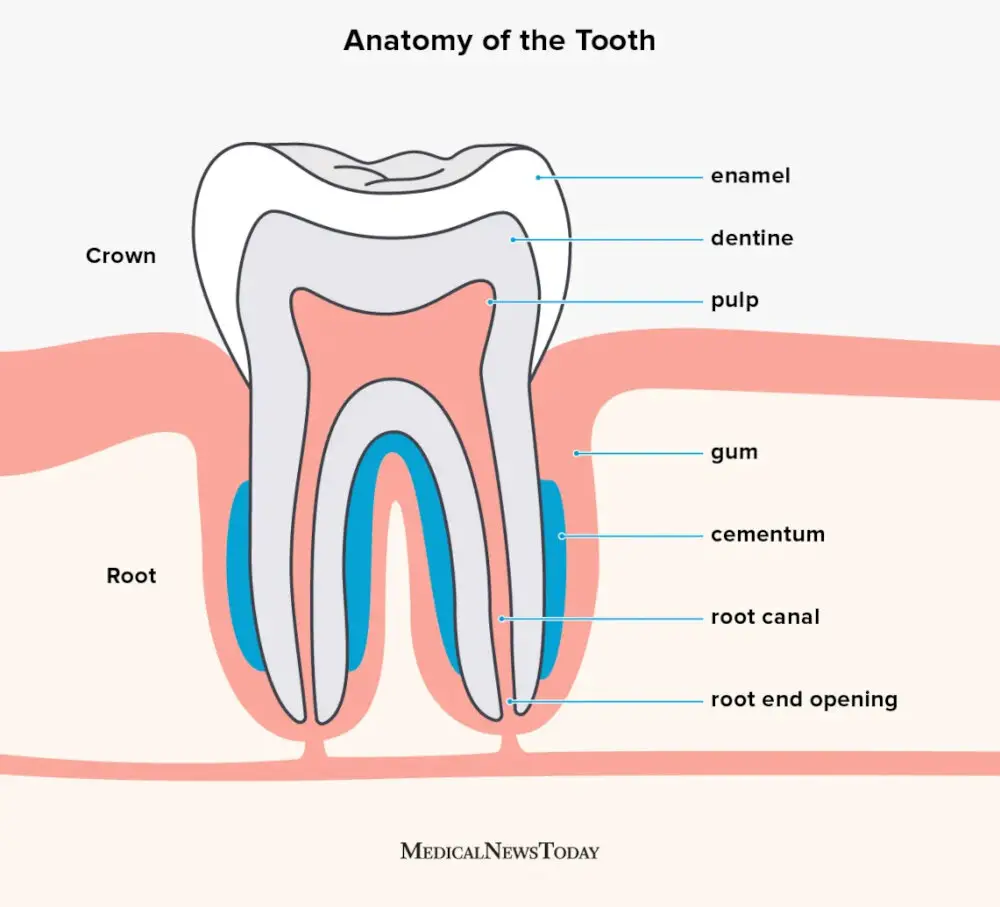
Dental problems are common issues that affect people of all ages. Some of the most common dental problems include cavities, gum disease, and tooth decay. Cavities occur when bacteria in the mouth produce acid that eats away at the tooth enamel. This can lead to tooth decay, which can cause tooth sensitivity, pain, and even tooth loss. Gum disease is another common dental problem that occurs when the gums become inflamed, swollen, and infected. If left untreated, gum disease can lead to tooth loss and other serious health problems. Fortunately, there are several treatments available for common dental problems. For cavities, dentists often fill them with a dental filling to prevent further decay. For more severe cases of tooth decay, a root canal may be needed. Gum disease can be treated with professional dental cleanings and, in severe cases, surgery. In addition to these treatments, good oral hygiene practices such as brushing twice a day, flossing daily, and visiting the dentist regularly can help prevent dental problems from occurring in the first place. By taking care of your teeth, you can ensure that they last for a lifetime.
Dental problems are a common issue faced by many individuals. One of the most common dental problems is cavities, which are caused by the buildup of plaque on teeth. Plaque is a sticky film that contains bacteria that produce acids that eat away at the tooth enamel, causing cavities. Another common dental problem is gum disease, which is caused by the buildup of plaque on the gums. Gum disease can cause inflammation, bleeding, and even tooth loss if left untreated. Other dental problems include tooth sensitivity, toothaches, and bad breath. Proper dental hygiene is essential to prevent and treat these dental problems and maintain healthy teeth for life.
When it comes to dental health, there are several different treatment options available to help keep your teeth healthy and functioning properly. Fillings are a common option for addressing cavities caused by decay. This involves removing the damaged portion of the tooth and filling it with a material such as composite resin or amalgam. Root canals are another option for addressing decay that has reached the inner pulp of the tooth. This involves removing the infected tissue and filling the space with a material to prevent further infection. In some cases, extraction may be necessary if the tooth is too damaged or decayed to repair. While these treatments can help address dental issues, it’s important to maintain good oral hygiene habits to prevent these issues from developing in the first place.
Early detection and treatment are crucial for maintaining healthy teeth and preventing serious dental problems. Regular dental check-ups can identify potential issues such as cavities, gum disease, and oral cancer before they become more severe. Early intervention can also prevent the need for more invasive and costly treatments down the road. For example, a small cavity caught early can be easily treated with a filling, while a larger cavity left untreated may require a root canal or extraction. Additionally, early detection and treatment of gum disease can prevent tooth loss and the need for dental implants or dentures. Therefore, prioritizing regular dental check-ups and addressing any issues promptly can help ensure that your teeth last a lifetime.
Advanced Dental Care

Advanced dental care is the key to maintaining healthy teeth for life. Regular brushing and flossing are essential, but they are not enough to prevent tooth decay and other dental problems. Advanced dental care involves regular visits to the dentist for cleanings and check-ups, as well as more complex procedures like root canals and dental implants. With advanced dental care, you can ensure that your teeth stay healthy and strong for decades to come. One of the most important aspects of advanced dental care is preventative care. This includes regular cleanings and check-ups, as well as fluoride treatments and sealants to protect your teeth from decay. Additionally, your dentist may recommend other preventative measures like mouthguards for sports or snore guards to prevent teeth grinding. By taking these steps, you can help prevent dental problems before they occur and keep your teeth healthy for life.
Advanced dental procedures, such as dental implants and orthodontics, have revolutionized the field of dentistry by providing solutions for patients with missing or damaged teeth and misaligned jaws. Dental implants are an effective and long-lasting option for replacing missing teeth, as they are designed to fuse with the jawbone and function like natural teeth. Orthodontics, on the other hand, involves the use of braces or clear aligners to correct misaligned teeth and jaws, improving both the appearance and functionality of the teeth and jaw. These advanced procedures require specialized training and experience, and patients should seek out a qualified and experienced dentist or orthodontist for optimal results.
Dental procedures have significantly advanced over the years, allowing people to keep their teeth healthy and strong for longer periods. Some of the benefits of these procedures include the prevention of tooth decay, gum diseases, and tooth loss. Additionally, cosmetic dentistry has provided people with the opportunity to improve their smiles, which can boost their confidence and self-esteem. However, there are also drawbacks to these procedures. For example, some procedures can be costly and require multiple visits to the dentist. Moreover, some people may experience discomfort during or after the procedure. Therefore, it is essential to weigh the benefits and drawbacks of dental procedures before making any decisions and to consult with a dental professional to determine the best course of action for your individual needs.
When it comes to choosing advanced dental care, there are several factors that should be considered. Firstly, it is important to ensure that the dental professional providing the care is experienced and well-trained in the specific treatment or procedure being undertaken. Additionally, patients should consider the potential risks and benefits of a particular treatment, as well as any potential side effects or complications. Cost is also an important consideration, as advanced dental care can be expensive and may not be covered by insurance. Finally, patients should take into account their overall oral health and any underlying medical conditions that may affect their dental care needs. By carefully considering these factors, patients can make informed decisions about their dental care and ensure that they receive the highest quality treatment possible.
Dental health is crucial for maintaining overall health and well-being. Teeth play a vital role in our lives, allowing us to eat and speak properly. Poor dental hygiene can lead to a variety of problems such as cavities, gum disease, and even tooth loss. Additionally, poor dental health has been linked to other health issues such as heart disease, diabetes, and respiratory infections. Regular dental check-ups, proper brushing and flossing techniques, and a healthy diet are essential for maintaining healthy teeth and gums. By taking care of our teeth, we can ensure that they last a lifetime and continue to serve us in all aspects of our lives.
The article \How Long Do Teeth Last: Expert Answers and Tips to Keep Your Teeth Healthy for Life\ provides valuable information on maintaining dental health. It emphasizes the importance of regular dental checkups, brushing twice a day, flossing daily, and avoiding sugary foods and drinks. The article also highlights the significance of proper nutrition for healthy teeth and the importance of using fluoride toothpaste. In addition, it provides expert answers to common dental questions such as the lifespan of teeth and how to prevent tooth decay. Overall, the article serves as a comprehensive guide to maintaining dental health and ensuring a lasting smile.
Prioritizing your dental health is crucial in ensuring that you maintain healthy teeth for life. Neglecting your oral hygiene can lead to a plethora of dental issues such as cavities, gum disease, and tooth loss. To prevent these problems, it’s important to make dental health a priority in your daily routine. This can be achieved by practicing good oral hygiene habits such as brushing twice a day, flossing daily, and scheduling regular dental check-ups. Additionally, avoiding sugary and acidic foods and drinks, and quitting smoking can help to protect your teeth from decay and damage. By prioritizing your dental health, you can ensure that you maintain a healthy and beautiful smile for years to come. So, take action today and make dental health a top priority in your life.
Conclusion

In conclusion, the lifespan of teeth is largely dependent on the individual’s oral hygiene habits and lifestyle choices. While genetics and age can play a role, regular dental check-ups, proper brushing and flossing, a healthy diet, and avoiding harmful habits such as smoking can all contribute to keeping teeth healthy for life. It’s never too late to start taking care of your teeth, and by implementing these expert tips and making oral health a priority, you can increase the longevity of your teeth and enjoy a healthy, beautiful smile for years to come.





